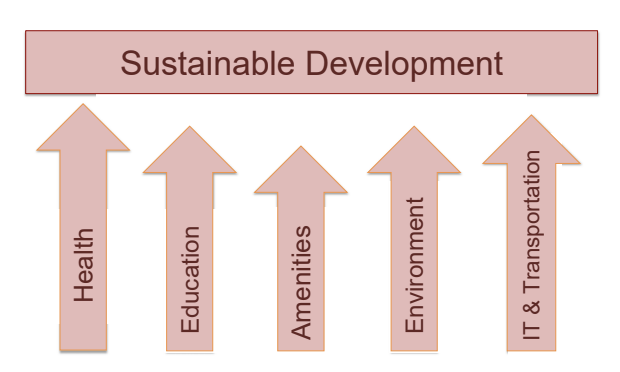
The Consortium
-
The Consortium
The Consortium is an interdisciplinary research initiative focusing on various economic, public health, environmental, social, and related issues in Spartanburg County. The Consortium is a collaborative effort between multiple organizations and individuals from different fields who research a specific topic or set of issues jointly.
Reports
Telling Our Story—A Community- Based Meso-Level Approach to Sustainable Community Development
-
Engaging diverse stakeholders in dialogue around sustainable development has proven to be a successful strategy to advance sustainable development goals. Without local engagement, sustainable development efforts can fail to accomplish their objectives. Yet, determining the best strategy for engaging diverse stakeholders can be challenging. Similarly challenging can be the transfer of information regarding successful development strategies from one community to another. Local specificity is key to finding sustainable development solutions.
Assessing Restorative Community Development Frameworks—A Meso-Level and Micro-Level Integrated Approach
-
This study evaluates restorative practices in community development by comparing two frameworks implemented in Washington, DC: the meso-level Five Pillars of Development and a grassroots micro-level framework in Ward 8. Both aim to address the long-standing challenges faced by disinvested communities through restorative development practices, rooted in restorative economics. The analysis examines the adaptability of the broader meso-level framework in capturing the complexities of micro-level approaches. By identifying gaps, the study proposes strategies to make the meso-level framework more effective for communities with limited resources to develop their own localized solutions.
Greened Out: Mitigating the Impacts of Eco-Gentrification Through Community Dialogue
-
This article explores the interplay between green infrastructure initiatives and eco-gentrification, focusing on Washington, DC. While green infrastructure—such as parks, green streets, and corridors—offers environmental benefits like flood protection and clean air, it often correlates with rising property values and displacement, disproportionately affecting low-income and minority communities. These areas, which are most in need of such improvements, have historically been excluded from planning processes due to systemic barriers.
Prosperity in Progress: A New Look at Archetypes of Successful Community Development
-
Engages stakeholders in development strategies using archetype analysis of 73 HUD-reported case studies across 67 cities and 37 states, it identifies four distinct pathways to development success. These pathways are based on five key characteristics: public investments, private investments, development plans, stakeholder engagement, and the Distressed Communities Index (DCI). By highlighting diverse approaches, the study provides valuable insights for policymakers to create tailored strategies that address specific community needs, promoting sustainable growth and resilience in urban areas.
The Politics of Property: Place-Making in Una, Saxon, and Arcadia
-
Una, Saxon, and Arcadia, historic textile mill villages in Spartanburg County, SC, are experiencing significant neighborhood change. Characterized by mid-century mill homes and a high renter population, residents are increasingly concerned about deteriorating housing and abandoned properties. Over two years, researchers conducted ethnographic studies to assess the impact of these issues on community well-being. Findings revealed strong personal and political ties between residents and their homes, highlighting the need for equitable neighborhood investment. Rather than a single policy solution, a collaborative approach—engaging residents and key stakeholders—offers a more inclusive path toward revitalizing these communities.
Defining Affordable Housing: An Ethnographic Analysis of Housing Trends In Spartanburg County
-
This report draws on ethnographic analysis of 19 in-depth interviews and 97 online survey responses to explore definitions of affordable housing and barriers to housing equity in Spartanburg. It highlights perspectives from a diverse range of stakeholders, including local government, non-profits, developers, landlords, homeowners, renters, and individuals experiencing houselessness. The findings, anonymized for confidentiality, underscore the unique experiences and varied solutions for achieving housing equity. The report emphasizes the interconnectedness of equity and sustainability, advocating for community-wide collaboration, trust, and inclusion to address systemic injustices and build a sustainable future for all.
Assessing Multi-Dimensional Complexity Through Sustainability Modeling: A Whole Community Approach
-
This study employs sustainability thinking to address challenges faced by U.S. communities, emphasizing the interconnectedness of economic development, social equity, and ecological integrity in policymaking. It introduces a Whole Community Sustainability (WCS) index, inspired by the UN Sustainable Development Goals, which uses 16 measures to capture various aspects of community sustainability. Using data from 2010 to 2014, the study finds that rural Oklahoma counties generally outperform urban ones on the WCS index, though with greater variability. Racial and class disparities emerge as key factors influencing performance. The research offers a replicable model for policymakers and community leaders to develop more effective sustainability strategies.







